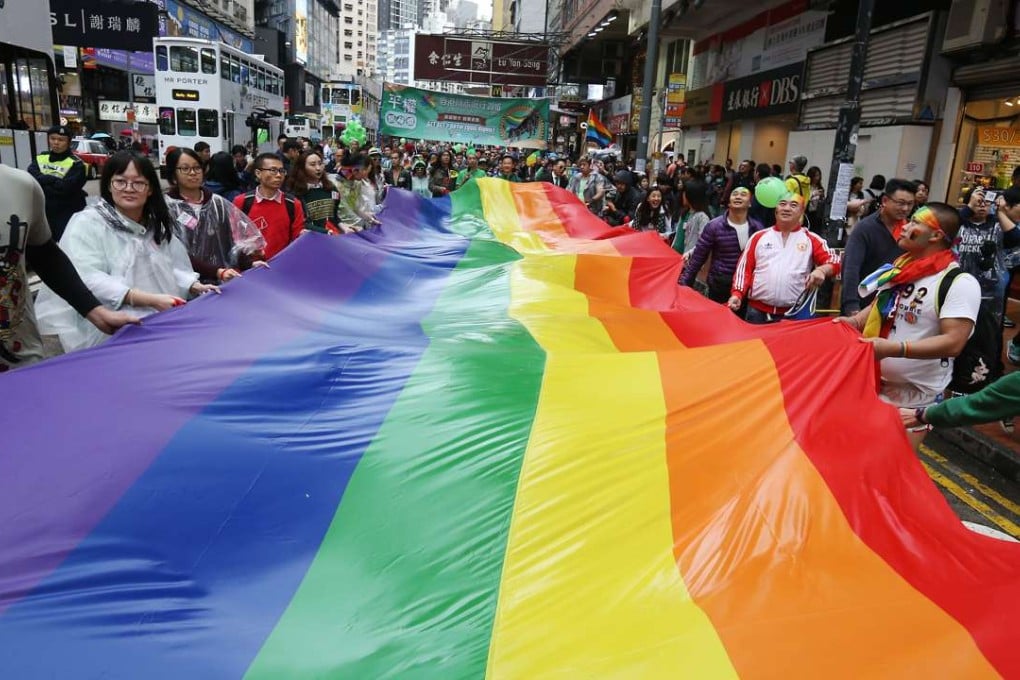More gay Hong Kong civil servants could marry abroad for spousal benefits, union says
Colleagues expected to ‘come out’ to claim their rights if landmark ruling for gay immigration officer seeking equal treatment for his spouse stands

Hong Kong might see more gay government employees marrying overseas to claim the same benefits for their spouses as their heterosexual counterparts, civil service unions said, after a landmark court ruling opened the door for them.
Hong Kong Federation of Civil Service Unions CEO Leung Chau-ting said the government should blame no one if more gay public sector employees were to marry in other countries as it had been depriving them of their rights.
“They’re just getting back [the benefits] married couples are entitled to,” Leung said. “The government should not deprive them of their rights because of their sexual orientation. Hong Kong is a cosmopolitan city and should revise its relevant laws to protect their rights.”
The government should not deprive them of their rights because of their sexual orientation
Disciplined Services General Union chairman Lau Yuk-fai expected more gay colleagues to “come out of the closet” to claim their rights if the ruling stood.